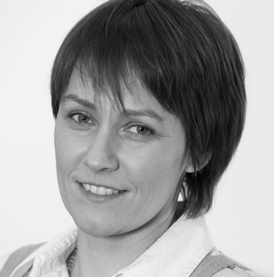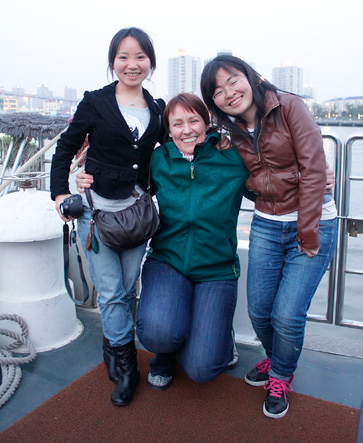The last word … today goes to Dr. Ramona Ecke from Fraunhofer ENAS


Dr. Ecke, what are you working on at the moment?
The Saxon “Function Integration for Micro-/ Nanoelectronics” Center of Excellence was one of our pilot projects. We are currently in a transitional phase towards a Transfer Center and are preparing for the topical profiling of the next funding period. I coordinate the specialist collaboration at the Institute and with the Technical University of Chemnitz as well as with the other core institutes (Fraunhofer IPMS, IIS / EAS, and IZM-ASSID).
Which of the projects being worked on by your colleagues in (other) Fraunhofer institutes interests you in particular?
As you know, I am also involved in the Research Fab Microelectronics Germany (FMD). This also gives you great insights into the other institutes within the Group for Microelectronics and the two associated Leibniz institutes IHP and FBH. The interesting thing is how differently our institutes are organized – from the operational concepts of the cleanrooms and the tasks assigned to the researchers and technical personnel for the systems and processes, up to and including logistics. At a training session in July, I got to know a colleague from the Fraunhofer Institute for Wood Research, Wilhelm-Klauditz-Institut WKI. It's certainly very interesting to learn about all the things you can make out of wood, particularly when you consider it from the point of view of a renewable resource.
What invention would you not like to do without in daily life?
The MP3 format. It got rid of all my mountains of cassettes and CDs. And you no longer waste time looking for the CD you want.
What do you wish you had more time for?
Now that my children are grown up, I bought myself a motorcycle this year. I did have a sense of trepidation at first, as I hadn’t ridden for twenty years. But, in the end, it’s just like riding a bike – you never really forget. Unfortunately, I only have the weekends available to ride, and there are also plenty of other things I could be doing.
Let’s look into the future. What would you like to have achieved in five or ten years’ time?
For the next five years, I expect the Transfer Center and the FMD to be my central tasks. They are both cross-institute projects and I hope that, with my work, I can contribute to establishing a new type of cooperation and of helping people to internalize the idea that we are a unit. I would also be very pleased if our ATTRACT group, headed by Prof. Heidemarie Schmidt and in which I am a mentor, has established itself both topically and technologically and is able to stand on its own two feet.
What song belongs to the “soundtrack” of your life?
I actually quite like to have peace and quiet around me. These days, I rarely consciously listen to music, but my playlist would have to have Gary Moore’s “Still Got the Blues” or “Let Me Make Something in Your Life.”
What was the last book you read?
The Rosie Project. It’s about a man who applies a very exact and scientific approach to finding the ideal woman. To do so, he draws up a 16-page questionnaire. As you might expect, no woman gets 100 % and things end up turning out quite differently.
Last, but not least: can you tell us what motto you live by?
Don’t spend time thinking about what you’re missing, but about what you have!
About Ramona Ecke:
Dr. Ramona Ecke studied Materials Sciences at TU BA Freiberg, specializing in anorganic/non-metallic materials. She then worked as a research associate at the Center for Microtechnologies at the TU Chemnitz, and got her doctorate in 2006 in tungsten-based diffusion barriers for copper metallization. Dr. Ecke was then a postdoc at the International Postgraduate Program “Materials and Concepts for Advanced Metallization Systems” with TU Chemnitz, Fudan University and Jiao Tong University in Shanghai. She coordinated the program throughout its entire term of ten years. In 2009, she moved to the newly founded Fraunhofer ENAS as a group leader for process integration and has been the deputy head of department for back-end of line for two years.
Last modified: